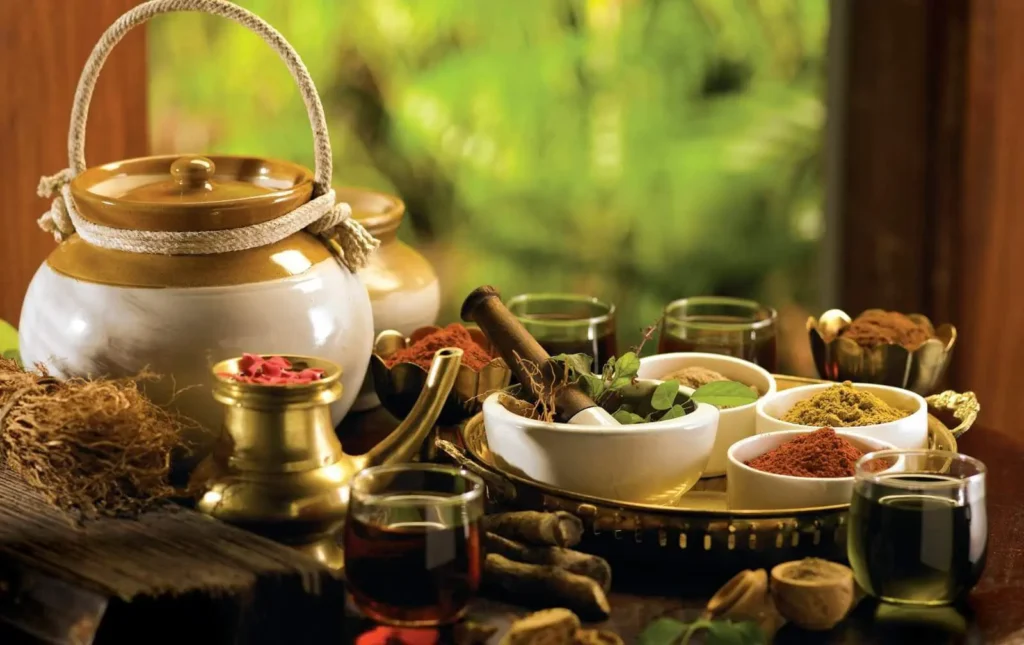Unlock Healing: Ayurveda Addiction Therapy Works

In a world where addiction is often addressed with pharmaceutical solutions and intensive rehabilitation, many are seeking holistic alternatives. Among these, Ayurveda addiction therapy has emerged as a powerful complement to modern rehabilitation techniques. Rooted in ancient Indian traditions, Ayurveda focuses on balancing the mind, body, and spirit—an approach that aligns well with long-term recovery goals. This article explores how Ayurvedic practices are being integrated with existing treatment models, particularly in collaboration with the nasha mukti kendra in India and with the support of organisations like Prayas Sewa Samiti, to provide more personalised and sustainable recovery solutions.
A Natural Path to Recovery
Understanding Addiction Through the Ayurvedic Lens
Ayurveda views addiction not merely as a chemical dependency but as an imbalance in the doshas—Vata, Pitta, and Kapha—which govern the body’s physiological and psychological functions. When these energies are disrupted due to substance abuse, it leads to disease and mental distress. Ayurveda addiction therapy aims to restore this balance using natural methods like herbal remedies, detoxification, yoga, and meditation.
Modern rehabilitation centres often focus on detox and withdrawal management, but they may not address the root emotional and spiritual causes of addiction. Ayurveda steps in to fill this gap by treating the individual as a whole rather than just the symptoms.
Integrating Ayurveda Addiction Therapy with Nasha Mukti Kendra in India
Many nasha mukti kendras in India are recognising the value of incorporating Ayurvedic methodologies into their conventional treatment programs. This integrated approach allows for a more well-rounded recovery experience. Here’s how Ayurveda is being applied:
Herbal Detox (Panchakarma): Panchakarma is a five-step purification process that eliminates toxins (ama) from the body. It helps clear the mind, stabilises emotions, and strengthens immunity, crucial elements in addiction recovery.
Medicinal Herbs: Ayurvedic herbs such as Ashwagandha, Brahmi, Shankhpushpi, and Jatamansi are known for their calming and restorative properties. These herbs are used to reduce withdrawal symptoms, stabilise mood, and improve sleep quality.
Dietary Guidance (Ahara): Diet is tailored to restore dosha balance. Foods rich in sattva (purity) are prescribed to nourish the mind and body. Patients at Nasha Mukti Kendra in India practising Ayurveda are often given freshly cooked, warm meals made with anti-inflammatory herbs.
Daily Routine (Dinacharya): Establishing a daily routine helps rebuild discipline and stability, often lost in the chaos of addiction. Simple habits like waking up early, oil massage (Abhyanga), and drinking herbal teas are promoted.
Yoga and Meditation: Asanas and breathing techniques help detoxify the body, reduce anxiety, and improve mental clarity. Meditation strengthens the willpower needed for sobriety.
Counselling and Emotional Healing: Ayurveda addiction therapy encourages introspection and emotional balance through spiritual practices like chanting, mindfulness, and self-reflection.
Case Studies: Successful Integration in Indian Rehab Centres
Haridwar Nasha Mukti Kendra: In collaboration with Ayurvedic doctors and supported by Prayas Sewa Samiti, this centre has implemented customised herbal detox and yoga therapy. Patients reported faster recovery and fewer relapses. Emotional well-being and stress resilience were notably improved.
Kerala-Based De-Addiction Centre: This centre combines Panchakarma with traditional detox. They reported a 40% improvement in mental health outcomes among addicts within the first three months. Meditation and herbal support helped patients reconnect with a sense of self-worth and community.
Pune Holistic Recovery Centre: By integrating Ayurveda addiction therapy, this centre offers personalised recovery plans. Patients experience emotional stability and lower dependency on chemical medications. Workshops on Ayurvedic cooking and lifestyle management were also introduced.
Benefits of Ayurveda Addiction Therapy
Natural and Non-Invasive: No synthetic chemicals or heavy medications are used.
Personalised Treatment: Based on individual constitution (Prakriti) and substance use history.
Holistic Healing: Addresses physical, emotional, and spiritual dimensions of recovery.
Fewer Side Effects: Natural remedies are safer for long-term use.
Sustainable Recovery: Lifestyle changes promoted by Ayurveda make relapse less likely.
Challenges in Mainstream Adoption
Despite its benefits, integrating Ayurveda addiction therapy in mainstream rehabs faces hurdles:
Lack of awareness among patients and healthcare professionals.
Inconsistent standards across Ayurvedic practitioners.
Limited government funding for Ayurvedic programs in rehab.
Cultural resistance in urban areas that prioritise Western medicine
To overcome these challenges, education, policy-level advocacy, and cross-disciplinary training are essential.
Role of Prayas Sewa Samiti in Promoting Ayurveda Addiction Therapy
Prayas Sewa Samiti has taken a pioneering role in advocating for Ayurvedic interventions in addiction recovery. Their efforts include:
Training rehab staff in Ayurvedic basics.
Creating awareness campaigns highlighting the benefits of natural therapies.
Organising community detox camps in rural areas using Ayurvedic methods.
Partnering with Nasha Mukti Kendra in India to offer blended treatment packages.
Future Outlook: A Synergistic Healing Model
The future of addiction recovery in India may lie in the successful marriage of science and tradition. As Ayurveda addiction therapy gains traction, more nasha mukti kendra in India are expected to adopt this hybrid model. With policy backing and support from NGOs like Prayas Sewa Samiti, a nationwide standard could be established for integrative recovery care.
Government bodies, such as AYUSH and the Ministry of Health, are increasingly open to funding integrated models. Ayurveda can be officially incorporated into national guidelines for addiction treatment. Future possibilities include mobile Ayurvedic therapy units, certification programs for Ayurvedic addiction counsellors, and public-private partnerships to scale services.
Conclusion: The Path to Balanced Recovery
Ayurveda addiction therapy offers an ancient yet relevant approach to a modern crisis. By integrating it with the proven frameworks of the nasha mukti kendra in India, patients receive a comprehensive healing experience—one that addresses not just their physical withdrawal but their emotional and spiritual well-being. As awareness and acceptance grow, Ayurveda’s role in addiction therapy is poised to become not just complementary but essential to sustainable recovery in India. With organisations like Prayas Sewa Samiti leading the way, the future of addiction treatment looks more holistic, inclusive, and compassionate.